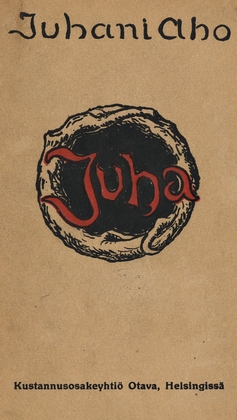 Cover of the first Finnish edition | |
| Author | Juhani Aho |
|---|---|
| Language | Finnish |
| Genre | Novel |
| Publisher | Otava |
Publication date | April 10, 1911 [1] |
| Pages | 266 |
| ISBN | 951-717-799-2 |
Juha is a novel by Finnish writer Juhani Aho, published in 1911. It is considered one of Aho's most important works: after its publication, Aho consolidated his role as the "national writer" of Finland. [2] The novel is at once characterized as one of his most classical and most modern works. Although taking the form of an epic, Juha does not lack drama in its plot.
Contents
Mathias Taube played Juha in Stiller's 1921 film, Hannes Närhi in Tapiovaara's 1937 film, Eino Kaipainen in Särkkä's 1956 film and Sakari Kuosmanen in Kaurismäki's 1999 film. Based on Juha, Mikko Roiha directed a dance theater work of the same name, which premiered at Korjaamo in January 2010. [3]